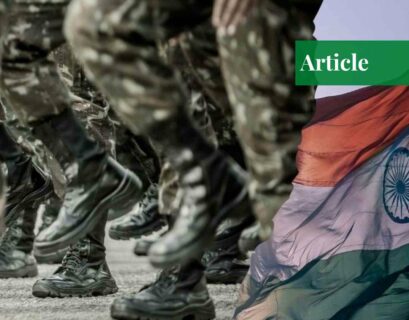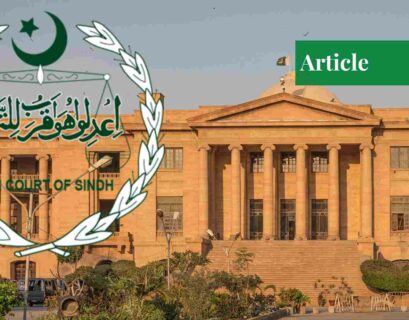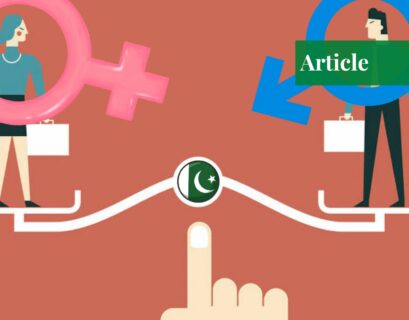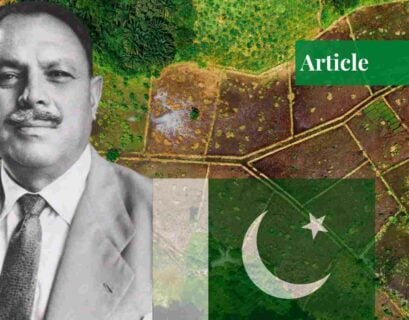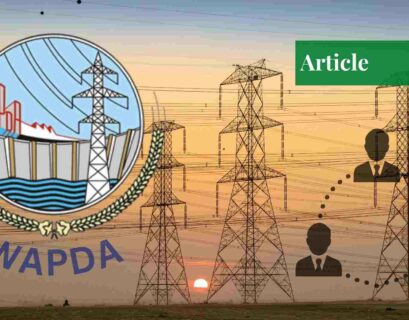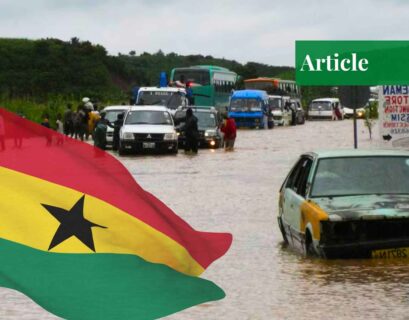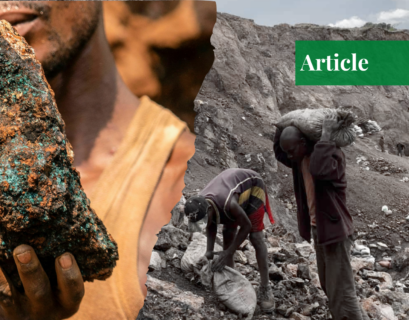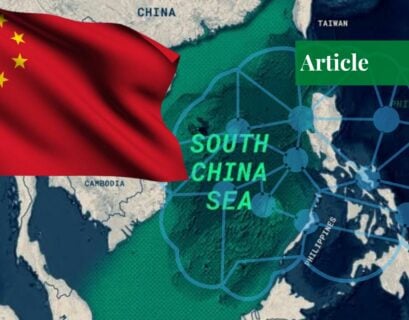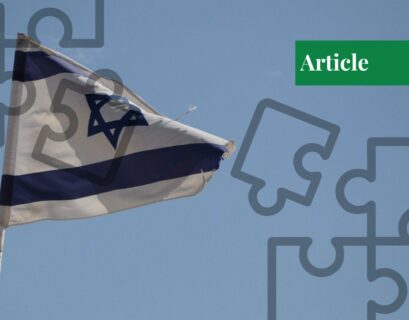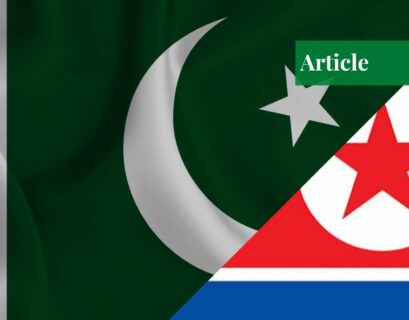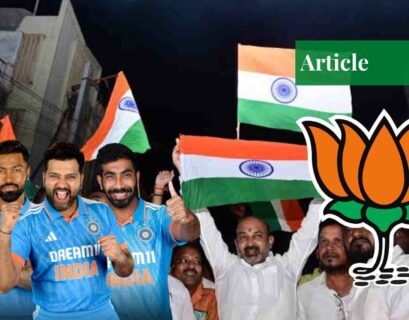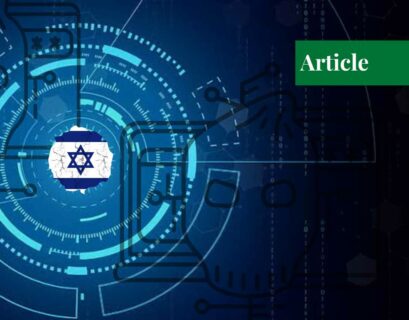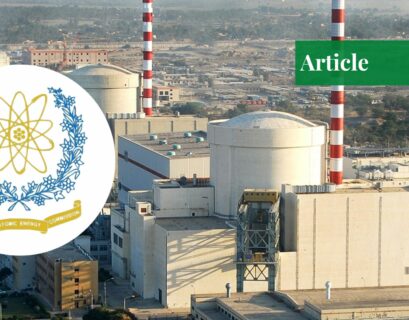India’s Experiment with Military Indigenization
Since the 1990s, India has made continuous efforts to expand its economy beyond traditional benchmarks of success.
India has reached the stage where it’s even taken on the indigenization of its defence sector, particularly the Tejas Mk-1 and Mk-2, in hopes of becoming a production house and supplier of military technology.
Unrest and Uncertainty: Analyzing the Wave of Military Coups in Africa
Africa is currently facing an alarming surge of military coups. Such events indicate serious problems within the governance and democratic processes of this continent.
The ripple effects of the coups in the African region reached both Niger and Gabon this year.
Palestinian Casualties in the Last Five Conflicts vs. the 2023 Genocide
Thousands of Palestinians have been martyred in the horrific genocide that Israel is currently undertaking. The Gaza War has amassed a higher fatality count than that of the five major escalations which took place in the past. The total number of Palestinian casualties combined from those aggressions was estimated to be 18,992, while the Gaza War of 2023, which shows no visible end, has as of yet a total of 70,756 casualties.
The Evolution of Sindh High Court (SHC)
The Sindh High Court, one of Pakistan’s five high courts, holds historical significance as a cornerstone of the province’s judiciary. Established in 1866, its evolution from the Sadar Court to the Sindh High Court underscores its pivotal role. The court’s jurisdiction spans civil and criminal matters, with recent landmark judgments exemplifying its commitment to justice.
Mobilising Women in Pakistan
The widening gender gap in Pakistan amid the ongoing economic crisis is yet another challenge Pakistan has to deal with. As indicated by the World Economic Forum’s Global Gender Gap Report 2023, Pakistan has been ranked 142 out of 146 countries. This reveals 57.5% gender parity in Pakistan, which is the highest since 2006.
A crisis-ridden country like Pakistan needs to mobilize its women for the development of the country by improving economic opportunities, providing quality education, working for their health and survival, and promoting political empowerment.
It’s the need of an hour to learn from countries like Finland and Iceland which have been successful in closing their gender gap. Constituting 49 percent of Pakistan’s total population, women’s participation in the economy is the way forward.
The Agricultural Reforms of Ayub Khan: Revolutionizing Farming in Pakistan
Since its independence, Pakistan’s challenges have been calling for attention and essential reforms, but history has not seen a well-planned and effective approach to agricultural growth before Ayub Khan’s reign. Much like his strategy to industrialization, every decision he made in the agricultural sector had an impact, both directly and indirectly. This essay investigates the unique incentives offered, Ayub Khan’s stern stance against social malpractices in agriculture, the restrictions imposed on ownership of land, the positive outcomes, and the overlooked variables of the Green Revolution era.
The Structural and Divisional Hierarchy of WAPDA
The Water and Power Development Authority (WAPDA) has served Pakistan for 65 years, managing power generation, water supply, irrigation, and flood control. This article explores the organization’s structural and divisional hierarchy. Led by its chairman, WAPDA operates with a hierarchical structure, including members overseeing the water, power, and finance wings, along with general managers, director generals, and labor workforces.
Rising Waters, Rising Challenges: Confronting Ghana’s Flood Crisis
Recent floods in Ghana’s southern regions have portrayed the devastating effect that natural disasters can have on communities, underscoring the need for climate action and disaster management strategies.
Muhammad Shahbaz Rajper investigates this topic from an international relations viewpoint by detailing the roles of NGOs, the responses by the IGOs, and future actions planned as a collective response.
Congo Bleeding for Cobalt: A Genocide in the Making
The Democratic Republic of Congo is currently witnessing one of its worst phases of violence and displacement in history, with approximately 6 million citizens internally displaced.
The quest for cobalt and extremist militias waging war in eastern provinces of Congo are causing a silent genocide of the Congolese.
Collaborative efforts should prioritize civilian safety, stability promotion, and the development of long-term solutions to end the cycle of violence that has afflicted the region for far too long.
China’s Maritime Strategy: Unleashing Artificial Intelligence in the South China Sea
China strategically deploys artificial intelligence (AI) in the South China Sea, enhancing maritime control through deep-sea operations, maritime drones, and decision-making processes. This multifaceted approach, aimed at gaining a technological edge and expanding influence, raises significant geopolitical and security concerns, and poses challenges to international law. The strategic use of AI by China in this critical region has implications for global stability and demands careful monitoring and international cooperation.
IMF’s Second Tranche: Economic Reforms and Challenges for Pakistan
In recent developments, Pakistan and the International Monetary Fund (IMF) have reached a preliminary deal for the release of the second tranche of a $3 billion bailout package. The much-anticipated agreement, aimed at averting a financial crisis, signals a crucial step in stabilizing Pakistan’s economy.
Aliza Nasir shares the key aspects of this agreement, the economic challenges faced by Pakistan, and the implications for its future.
Israel’s Strategic Depth: History & The 2023 Gaza War
Sarmad Ishfaq examines the concept of strategic depth, primarily in the context of Israel. He outlines the historical evolution of Israel’s strategic depth, discussing both the political and maritime dimensions of the phenomenon. Considering both traditional and political strategic depth, the article explains how these two aspects have manifested themselves in the 2023 Israel-Hamas conflict.
Pakistan-North Korea Relations: An Unexpected Friendship
Over the years, North Korea and Pakistan have maintained an intricate and, at times, surreptitious relationship, one that is grounded in strategic alliances and shared interests in military technological advancements.
Such a relationship has challenged stability in the region, specifically due to global efforts towards deterring nuclear proliferation. Other than the occasional diplomatic precursor from both sides, the depth of this cryptic alliance is left to one’s imagination.
BJP and its Politics of Cricket
Cricket–and the World Cup–in India have become more than just an event for the people to enjoy. For Modi and the BJP, hosting the ICC World Cup is just one more feather of international recognition in their caps, following the G20 summit just weeks ago.
It could be due to the fact that sports and entertainment have a way of going where historically politics and state media have had a hard time penetrating.
The Israeli Attacks in Gaza: Assessing the Humanitarian Implications
The ongoing Israel-Gaza War has plunged the people of Gaza into widespread devastation. Israel’s relentless bombings have resulted in a humanitarian crisis, with thousands of Palestinians killed and injured. Half of Gaza’s population comprises children, who are now bearing the brunt of the conflict.
Gaza no longer has any safe spaces, and even its hospitals are not immune to Israeli attacks. With no access to food, water, electricity, and shelter, the future of Gaza seems bleak if the current situation persists.
Israel’s Dominance in Cyberspace: What Made It Possible?
In recent years, Israel has emerged as a dominant force in the realm of cyberspace, sparking widespread interest and concern worldwide. Fatimah Naeem delves into the factors behind Israel’s ascent in the cyber domain.
Israel’s close relationship with the United States has enabled extensive collaboration and intelligence sharing, bolstering its cyber capabilities. However, this dominance is not without controversy. Israel’s activities in cyberspace have raised ethical and geopolitical concerns, leading to calls for increased transparency and regulation.
As Israel’s influence in cyberspace continues to grow, understanding its role in this digital landscape is of paramount importance.
From Reactors to Crops: The Multifaceted Role of the Pakistan Atomic Energy Commission (PAEC)
From pioneering research in nuclear energy to transformative projects in healthcare, agriculture, and environmental conservation, the Pakistan Atomic Energy Commission (PAEC) continues to redefine possibilities for a sustainable and prosperous Pakistan.
As the demand for cleaner and more efficient energy solutions intensifies, PAEC’s pioneering efforts are instrumental in driving Pakistan towards a greener and more sustainable future. By harnessing the power of nuclear science and technology, PAEC is paving the way for a resilient and energy-abundant tomorrow.
